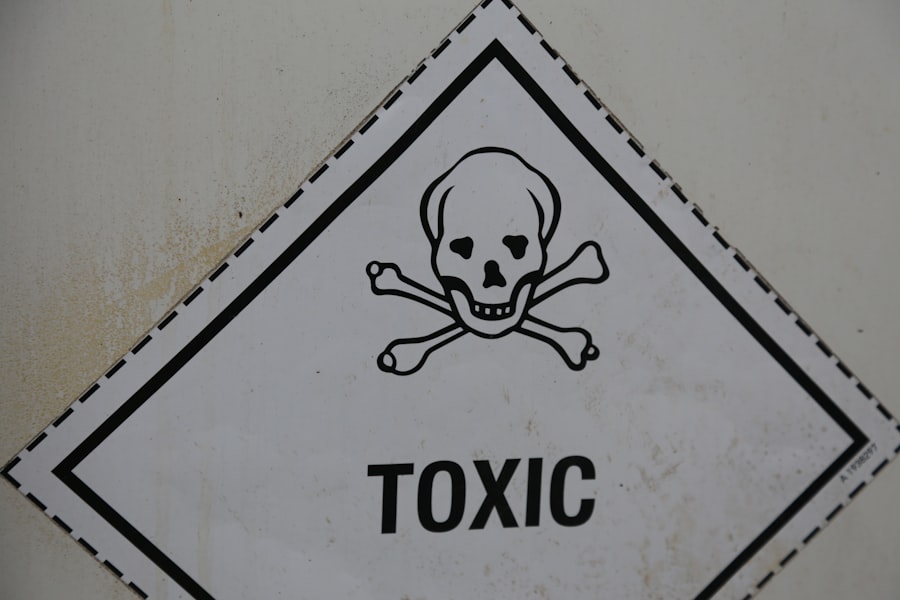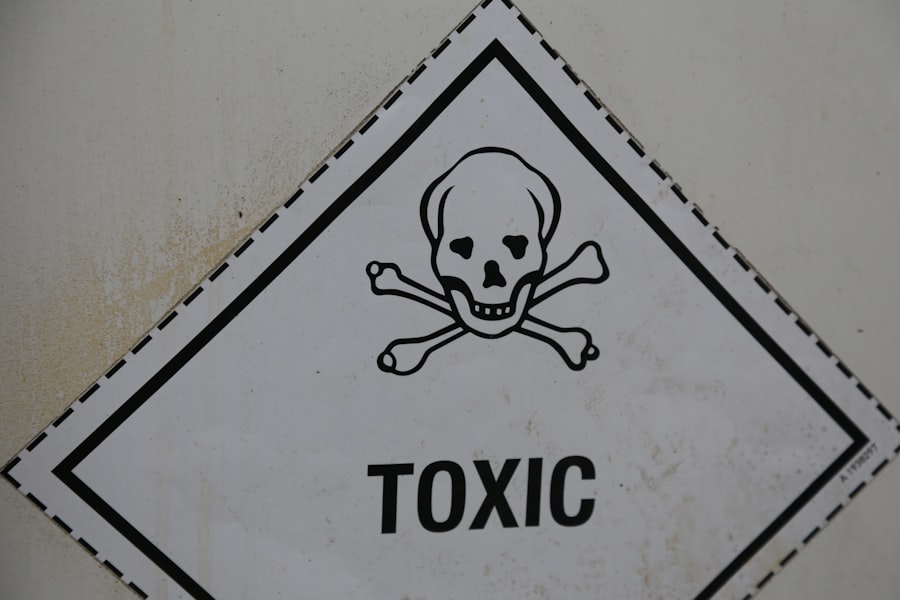Navigating relationships can be a complex endeavor, especially when you encounter toxic individuals. Toxic people are those who consistently bring negativity into your life, draining your energy and undermining your well-being. They often exhibit behaviors that are harmful, whether intentionally or unintentionally, and can leave you feeling emotionally exhausted.
Understanding the characteristics of toxic individuals is crucial for your mental health and personal growth. By recognizing these traits, you can better protect yourself and make informed decisions about the relationships you choose to maintain. You may find that toxic people come in various forms, from overly critical friends to manipulative family members.
Their presence can create an environment filled with tension and anxiety, making it difficult for you to thrive. It’s essential to identify these individuals early on, as their influence can seep into your life, affecting your self-esteem and overall happiness. By understanding what makes someone toxic, you empower yourself to set boundaries and prioritize your emotional well-being.
Key Takeaways
- Toxic people can have manipulative behavior and lack empathy
- They often engage in constant criticism and seek to control and dominate others
- Their negative energy can lead to boundary violation and gaslighting
- Toxic individuals often exhibit a victim mentality and intolerance and judgment towards others
- They frequently lack accountability for their actions and their impact on others
Manipulative Behavior
Manipulative behavior is a hallmark of toxic individuals, often manifesting in subtle yet damaging ways. You might notice that these people have a knack for twisting situations to their advantage, making you question your own perceptions and feelings. They may employ guilt-tripping tactics or play the victim to elicit sympathy, all while steering the narrative in their favor.
This manipulation can leave you feeling confused and unsure of yourself, as they often blur the lines between reality and their version of events. Recognizing manipulation is vital for your emotional health. You may find yourself second-guessing your decisions or feeling responsible for their emotions.
This dynamic can create a cycle of dependency where you feel compelled to cater to their needs at the expense of your own. By becoming aware of these manipulative tactics, you can begin to reclaim your power and establish healthier interactions. It’s important to trust your instincts and stand firm against any attempts to manipulate your thoughts or feelings.
Lack of Empathy

A significant trait of toxic individuals is their lack of empathy. You may notice that they struggle to understand or relate to the feelings of others, often prioritizing their own needs above all else. This absence of empathy can manifest in various ways, such as dismissing your concerns or failing to offer support during difficult times.
When you’re dealing with someone who lacks empathy, it can feel isolating and frustrating, as they may not recognize the impact of their words or actions on your emotional state. This lack of empathy can lead to a one-sided relationship where your feelings are consistently overlooked. You might find yourself feeling unheard or invalidated, which can erode your self-worth over time.
It’s essential to surround yourself with individuals who demonstrate genuine care and understanding, as this fosters a supportive environment where you can thrive. By recognizing the signs of a lack of empathy in others, you can make more informed choices about who you allow into your life.
Constant Criticism
| Types of Criticism | Effects |
|---|---|
| Destructive Criticism | Low self-esteem, demotivation |
| Constructive Criticism | Opportunity for growth, improvement |
| Constant Criticism | Anxiety, stress, decreased productivity |
Constant criticism is another defining characteristic of toxic people. You may find that these individuals frequently point out your flaws or shortcomings, often under the guise of “constructive feedback.” However, this type of criticism rarely feels constructive; instead, it often leaves you feeling belittled and demoralized. Over time, this relentless barrage of negativity can chip away at your confidence and self-esteem, making it challenging for you to see your own worth.
It’s important to differentiate between helpful feedback and harmful criticism. While constructive criticism can be beneficial when delivered with kindness and respect, toxic criticism serves only to undermine your self-image. You deserve relationships that uplift and encourage you rather than tear you down.
By recognizing the difference, you can begin to distance yourself from those who engage in constant criticism and seek out healthier connections that foster growth and positivity.
Control and Domination
Toxic individuals often exhibit controlling behavior, seeking to dominate situations and manipulate outcomes to suit their desires. You may find that they attempt to dictate how you should think, feel, or act, leaving little room for your autonomy. This need for control can manifest in various ways, from making decisions for you to undermining your choices in subtle yet impactful manners.
Such behavior can create an oppressive atmosphere where you feel stifled and unable to express yourself freely. Recognizing control and domination is crucial for maintaining your sense of self. You may feel pressured to conform to their expectations or find yourself constantly justifying your actions.
This dynamic can lead to resentment and frustration as you struggle to assert your independence. It’s essential to establish boundaries and communicate your needs clearly when faced with controlling behavior. By doing so, you reclaim your power and foster healthier relationships built on mutual respect.
Negative Energy

The presence of negative energy is a common trait among toxic individuals. You may notice that being around them leaves you feeling drained or anxious, as they often exude pessimism and hostility. This negative energy can be contagious, affecting not only your mood but also your overall outlook on life.
When surrounded by such negativity, it becomes increasingly difficult for you to maintain a positive mindset or pursue your goals with enthusiasm. It’s essential to be mindful of the energy that others bring into your life. You deserve relationships that inspire and uplift you rather than weigh you down with negativity.
By recognizing the impact of negative energy on your well-being, you can make conscious choices about who you spend time with. Surrounding yourself with positive influences will not only enhance your mood but also encourage personal growth and resilience in the face of challenges.
Boundary Violation
Toxic individuals often have little regard for personal boundaries, frequently overstepping limits that are essential for healthy relationships. You may find that they disregard your need for space or privacy, pushing you to share more than you’re comfortable with or demanding your time without consideration for your own needs. This violation of boundaries can lead to feelings of discomfort and resentment as you struggle to assert yourself in the relationship.
Establishing clear boundaries is vital for protecting your emotional well-being. You have every right to define what is acceptable in your interactions with others. When faced with boundary violations, it’s important to communicate assertively and stand firm in your decisions.
By doing so, you not only safeguard your own mental health but also set a precedent for how you expect to be treated in future relationships.
Gaslighting
Gaslighting is a particularly insidious form of manipulation often employed by toxic individuals. You may find yourself questioning your reality or doubting your perceptions due to their persistent denial or distortion of facts. This psychological manipulation can leave you feeling confused and disoriented, as they systematically undermine your confidence in your own thoughts and feelings.
Gaslighting can be incredibly damaging, eroding trust in yourself and creating a sense of dependency on the toxic individual. Recognizing gaslighting is crucial for reclaiming your sense of reality. You may notice patterns where the toxic person dismisses your experiences or insists that events occurred differently than you remember.
It’s essential to trust your instincts and seek validation from trusted friends or family members who can help reaffirm your perspective. By acknowledging gaslighting for what it is, you empower yourself to break free from its grasp and rebuild your self-confidence.
Victim Mentality
Toxic individuals often adopt a victim mentality, using it as a shield against accountability for their actions. You may notice that they frequently portray themselves as the victim in various situations, deflecting blame onto others while refusing to take responsibility for their behavior. This mindset not only stifles personal growth but also creates an environment where genuine issues are overlooked in favor of self-pity.
Dealing with someone who consistently plays the victim can be emotionally exhausting. You might find yourself feeling guilty for expressing concerns or attempting to address issues within the relationship. It’s important to recognize that while everyone faces challenges, constantly adopting a victim mentality prevents meaningful resolution and growth.
By setting boundaries around this behavior, you encourage healthier communication patterns that promote accountability and mutual support.
Intolerance and Judgment
Toxic individuals often exhibit intolerance and judgment towards others, creating an atmosphere filled with negativity and criticism. You may find that they are quick to judge others based on superficial traits or differing opinions, fostering an environment where acceptance is scarce. This intolerance not only affects their relationships but also impacts those around them, leaving you feeling uncomfortable or defensive in their presence.
It’s essential to surround yourself with individuals who embrace diversity and promote understanding rather than judgment. You deserve relationships that celebrate differences and encourage open dialogue rather than foster division. By recognizing intolerance in others, you can make conscious choices about who you allow into your life, prioritizing connections that uplift rather than diminish.
Lack of Accountability
A lack of accountability is a defining trait among toxic individuals, often manifesting as an unwillingness to acknowledge their mistakes or take responsibility for their actions. You may find that they frequently shift blame onto others or make excuses for their behavior rather than owning up to their shortcomings. This lack of accountability not only hinders personal growth but also creates an imbalance in relationships where one party consistently bears the burden of responsibility.
Recognizing this pattern is crucial for maintaining healthy boundaries in your relationships. You deserve connections where both parties are willing to acknowledge their mistakes and work towards resolution together. By holding toxic individuals accountable for their actions—or choosing to distance yourself from them—you create space for healthier interactions built on mutual respect and understanding.
In conclusion, understanding the traits associated with toxic people is essential for safeguarding your emotional well-being and fostering healthier relationships. By recognizing manipulative behavior, lack of empathy, constant criticism, control dynamics, negative energy, boundary violations, gaslighting tactics, victim mentalities, intolerance, judgmental attitudes, and a lack of accountability, you empower yourself to make informed choices about who you allow into your life. Prioritizing self-care and surrounding yourself with positive influences will ultimately lead to a more fulfilling and balanced existence.
When navigating relationships, it’s crucial to recognize the signs of a toxic person to maintain your mental well-being. A related article that delves into this topic can be found on Unplugged Psychology’s website. This resource provides valuable insights into identifying toxic behaviors and offers strategies for managing such relationships effectively. For more detailed information, you can read the article by visiting unpluggedpsych.
com/’>Unplugged Psychology. This site offers a wealth of knowledge on psychological well-being and personal growth, making it a valuable tool for anyone looking to improve their interpersonal interactions.
WATCH THIS! 🧠 The 11 Manipulation Tactics That Trap Smart People
FAQs
What are the signs of a toxic person?
Some signs of a toxic person include constant negativity, manipulation, lack of empathy, and a tendency to create drama or conflict.
How can you spot a toxic person in a relationship?
In a relationship, a toxic person may exhibit controlling behavior, emotional abuse, gaslighting, and a lack of respect for boundaries.
What are the effects of being around a toxic person?
Being around a toxic person can lead to feelings of anxiety, low self-esteem, and emotional exhaustion. It can also impact your mental and physical health.
How can you protect yourself from toxic people?
To protect yourself from toxic people, it’s important to set boundaries, prioritize self-care, and seek support from friends, family, or a therapist. It may also be necessary to distance yourself or end the relationship with the toxic person.
Can toxic behavior be changed?
While it is possible for some individuals to recognize and change their toxic behavior with self-awareness and professional help, it is not always guaranteed. It’s important to prioritize your own well-being and safety when dealing with toxic individuals.




